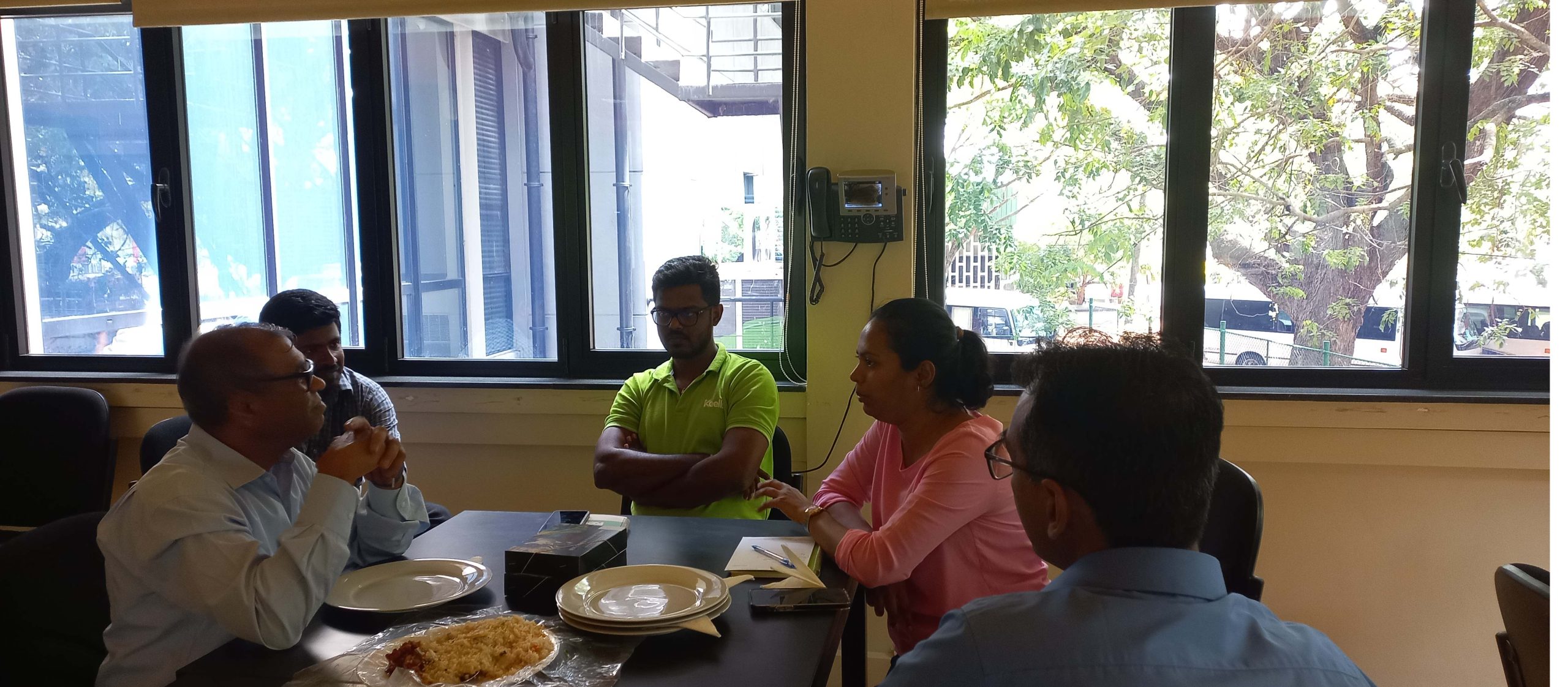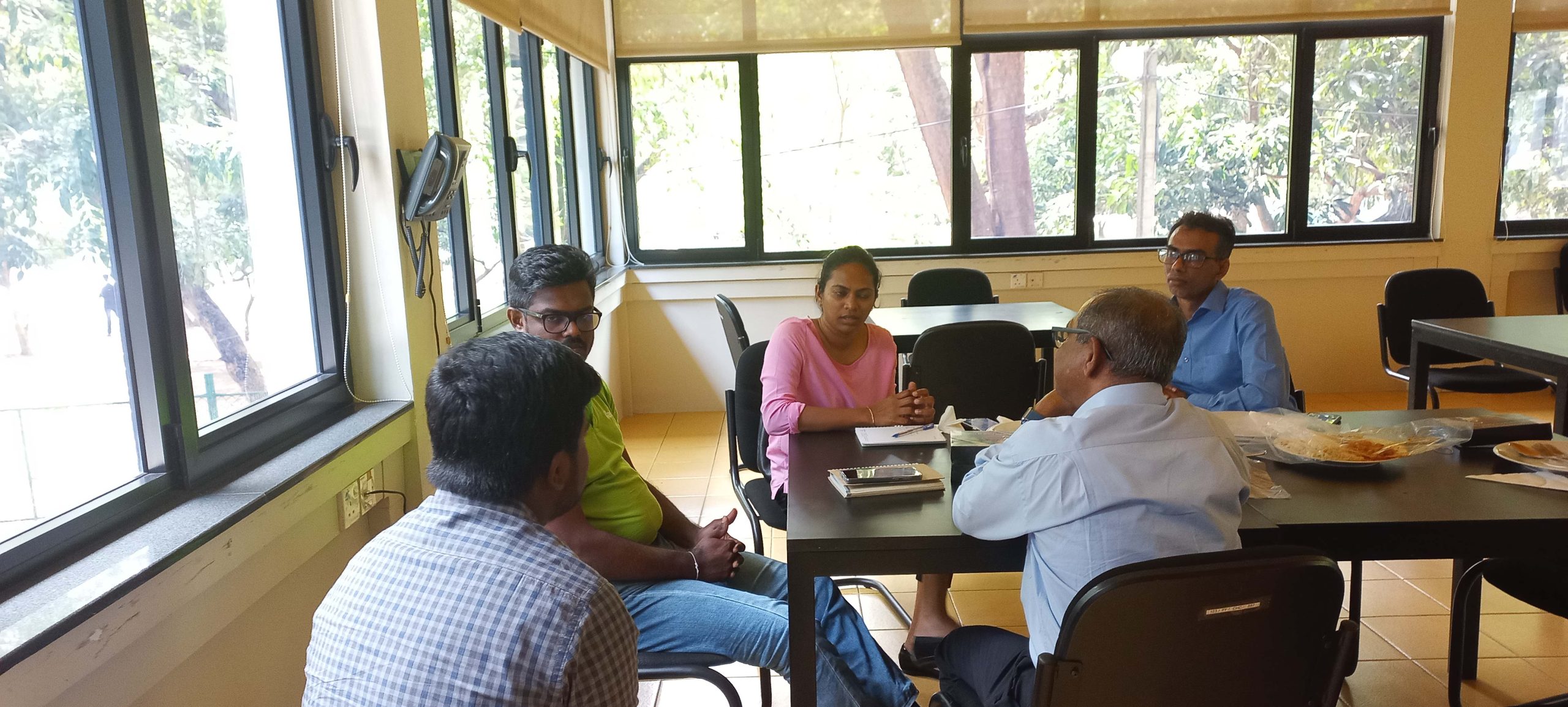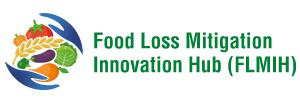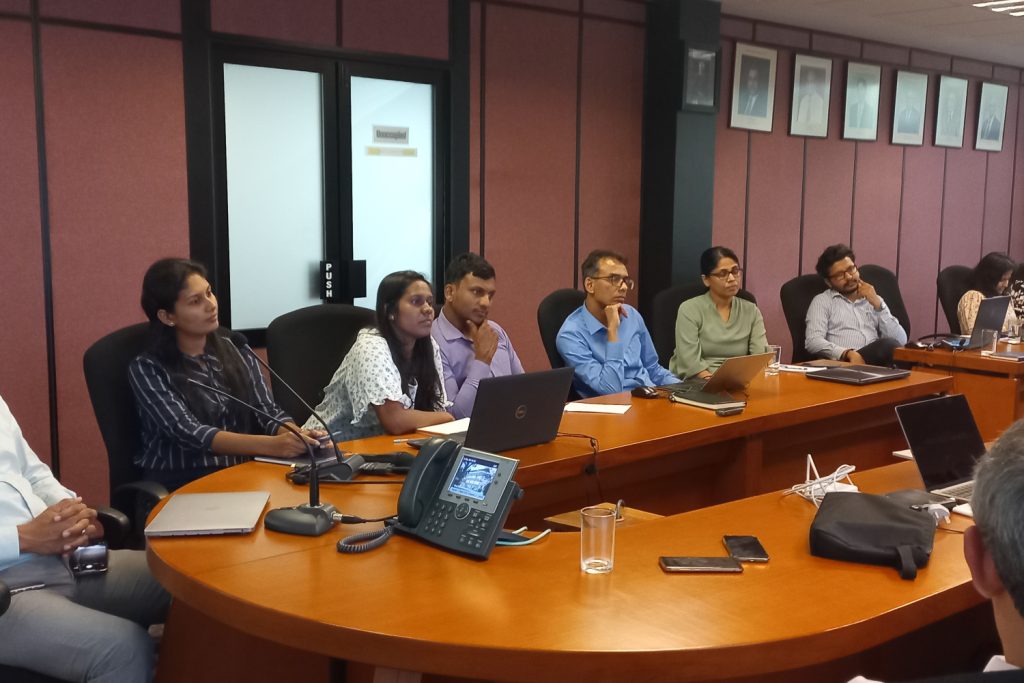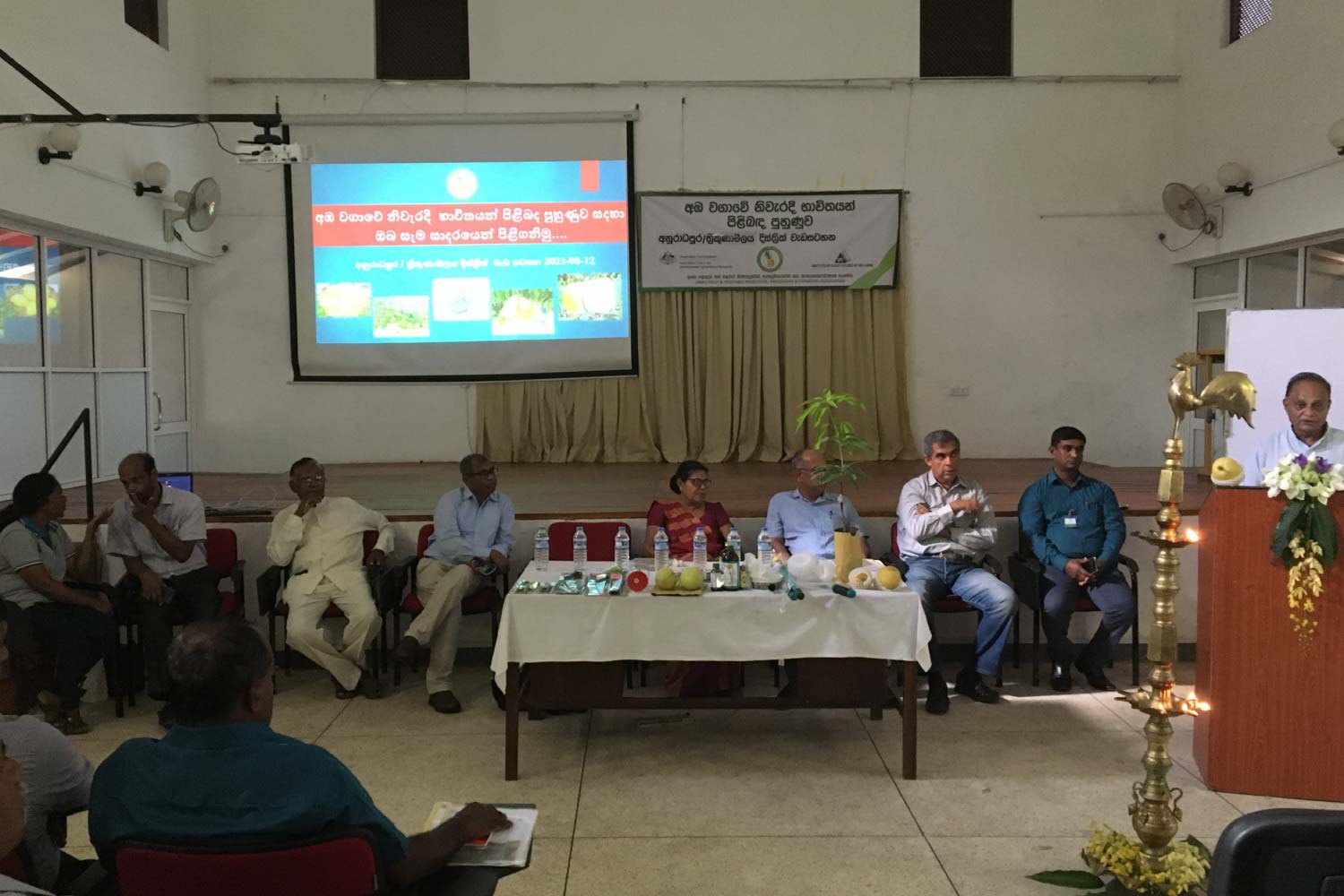The initial meeting with the ACIAR project team took place on August 10th, in the IPS conference room. This gathering brought together representatives from the University of Peradeniya, Open University of Sri Lanka, and the Institute of Policy Studies of Sri Lanka.
The meeting was structured into two sessions. The morning session commenced with an ice-breaking event, where participants engaged in discussions related to the modelling work. This session emphasized the crucial role that quality-contingent contracts would play in shaping the experimental setup. In the afternoon, the focus shifted to planning the modelling work.
A capacity-building training session was designed to equip team members with the necessary knowledge and skills to effectively execute the project.
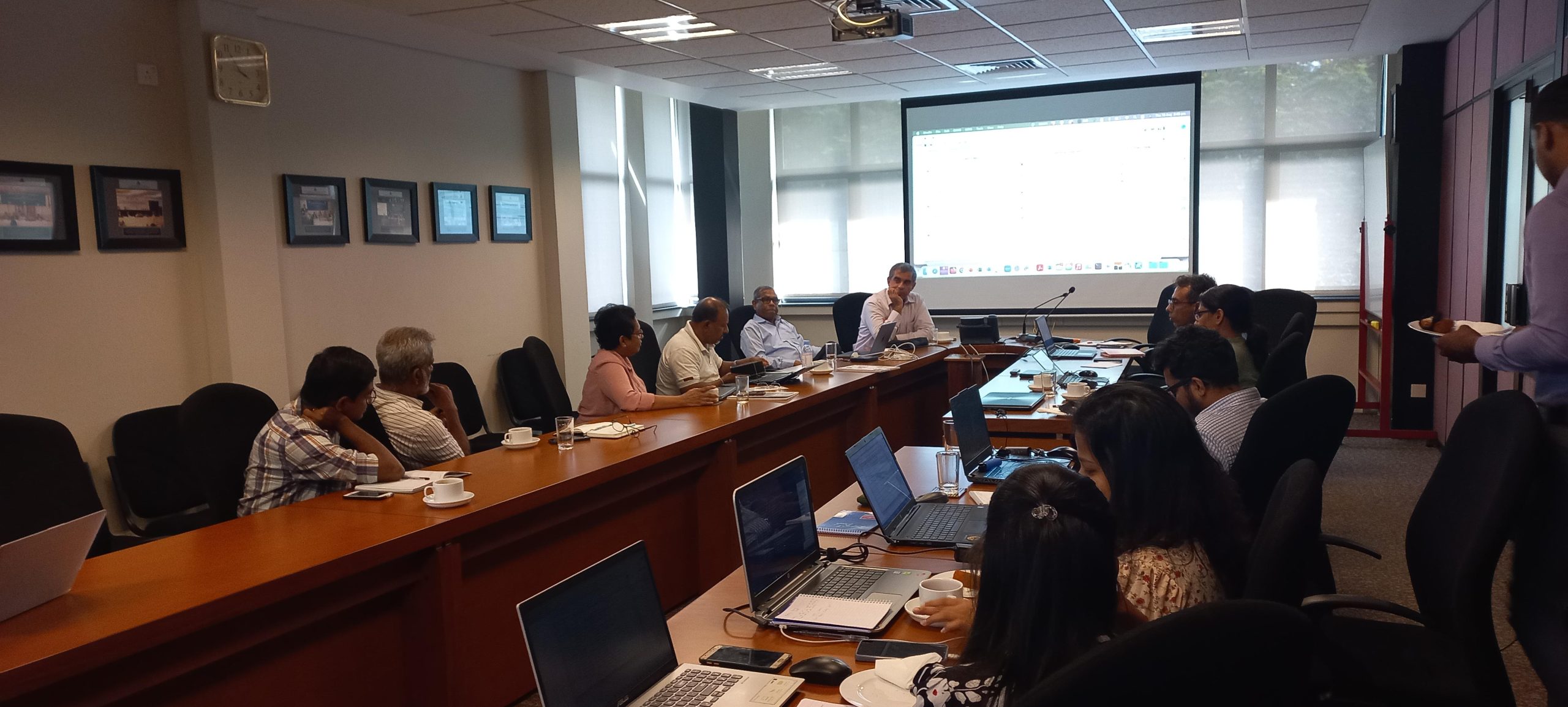
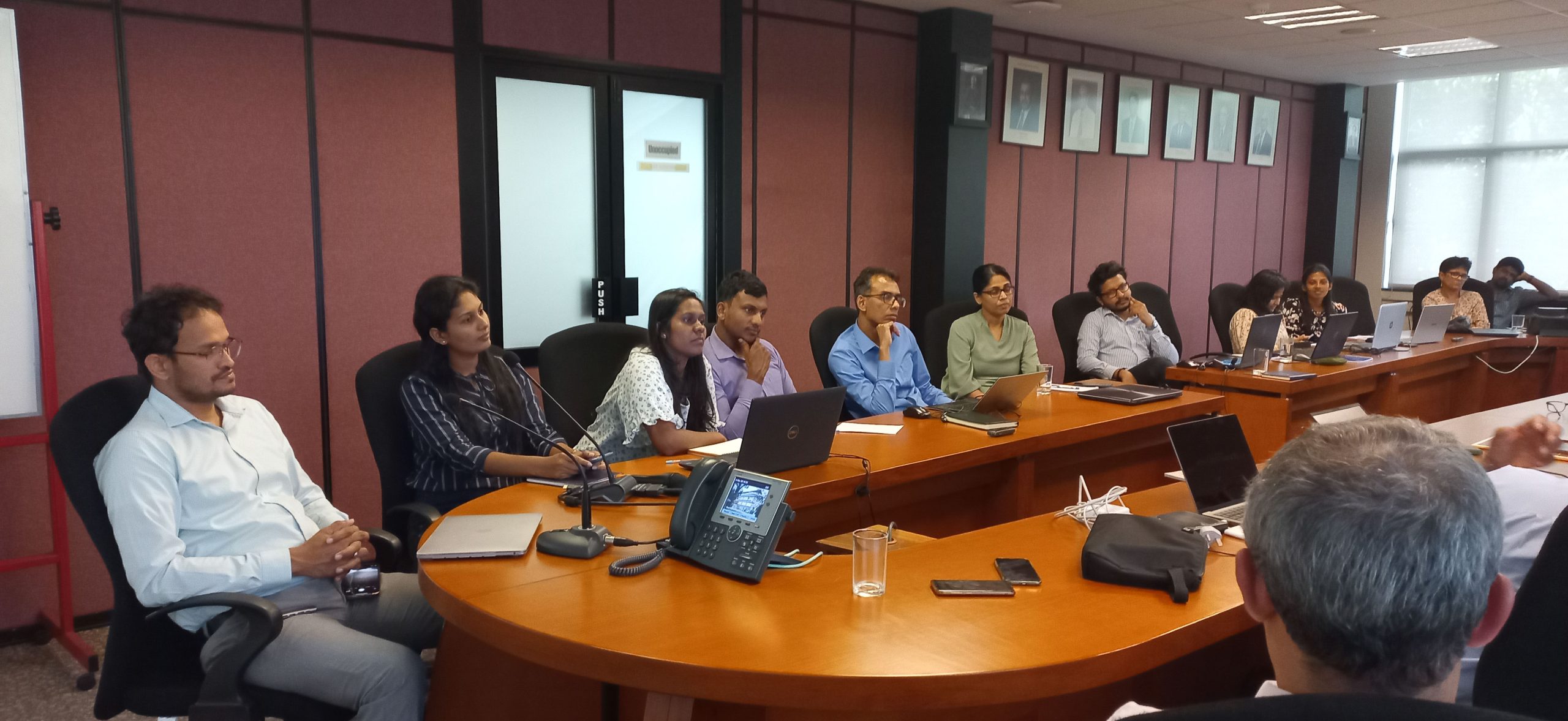
In the first session, participants took the opportunity to introduce themselves, providing insights into their respective roles within the project. Furthermore, during this session, participants shared updates on their individual work progress within the project.
Ms. Dinithi Malaviarachchi presented a comprehensive definitional framework on food loss and waste developed by the Peradeniya team. Dr. Anuradha Jayaweera and their team shared research findings from their visits to Jaffna mango farmers, shedding light on the cultural aspects associated with the traditional mango cultivations. An overview of value chain losses was shared with the team members by Mr. Sidath Wickrama providing calculated quantitative values at each value chain actor levels offering insights into critical loss points. Prof. D.K.N.G. Pushpakumara and Dr. Sunil Thrikawala contributed by outlining ongoing studies and guiding the project’s future direction. Dr. Manoj Thibbotuwawa from Institute of Policy Studies of Sri Lanka (IPS), Prof. Darshani Weerahewa from Open University of Sri Lanka (OUSL) shared the progress of the studies conducted by their teams.
The significant outcomes during the meeting were pointed out as follows:
- Indicated the farmers’ willingness to embrace new technologies
- Suggested that efforts should be made to enhance the quality of surveys conducted, ensuring that data collection methods are rigorous and reliable
- Proposed to study the operational model employed by the large mango farms managed by the Sri Lankan Army
- Emerged an idea to develop an application for assisting mango and tomato farmers
- Agreed to conduct a comprehensive cost-benefit analysis for the value chain actors at each stage, including consideration for animals
During the lunch break, a meeting was organized at the IPS executive lounge with Ms. Punya Nanayakkara from Nelna Group. In this discussion, the participants briefly discussed on the project tasks completed thus far and what to do in upcoming years.
The afternoon session commenced with Mr. Nawarathne Bandara delivering a presentation that introduced the FAO e-learning course on Food Loss Analysis. Following this, Prof. Thilak Mallwaarachchi led the capacity-building session, focusing on the utilization of case study methodology and providing an introduction to the Generalized Algebraic Modelling System (GAMS). At the end of the interactive session the Mrs. Dasuni Dayananda, Dr. Manoj Thibbotuwawa and Dr. Erandathie Pathiraja shared their experience regarding the modelling work. During the discussion, there was a proposal to model a farm or a specific situation within a selected area. This modelling approach would allow for predictions and simulations of potential effects in other areas when conditions were manipulated, offering a powerful tool for decision-making and planning in the project’s future endeavours. The session concluded with an open and engaging discussion about the future direction of the project.
